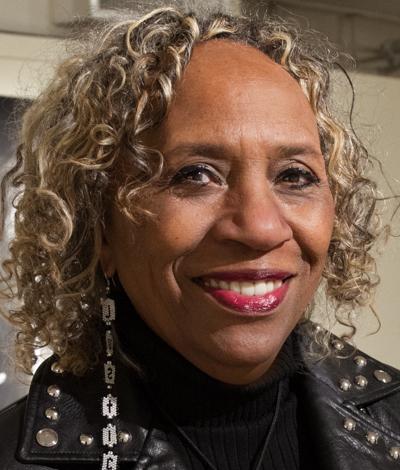By Edward Henderson | California Black Media
Last week, California Black Media (CBM) provided an update on four bills in the California Legislative Black Caucus (CLBC) 2025 Road to Repair package.
The 16 bills in the Black Caucus’s 2025 “Road to Repair” package focus on “repairing the generational harms caused by the cruel treatment of African American slaves in the United States and decades of systemic deprivation and injustice inflicted upon Black Californians,” said the CLBC in a release.
This week, CBM examines four more bills in the package — each offering ways for Black Californians to receive restitution for past injustices — from housing assistance and reclamation of loss property to fairer pay and the establishment of a state agency charged with determining eligibility for reparations.
Here are summaries of these bills, information about their authors, and updates on how far each one has advanced in the legislative process.
Assembly Bill (AB) 57
AB 57, introduced by Assemblymember Tina McKinnor (D-Inglewood), would require that at least 10% of the monies in the state’s home purchase assistance fund be made available to applicants who meet the requirements for a loan under the home purchase assistance program and are descendants of formerly enslaved people.
“California has long been a leader in addressing historical inequities and AB 57 builds on that legacy by acknowledging and addressing the systemic barriers that have prevented descendants of enslaved people from achieving equitable access to homeownership,” said McKinnor in a release. “Homeownership is a cornerstone of wealth building, and this bill is an important step toward ensuring that this historically marginalized community has opportunities to close the wealth gap and achieve economic stability.”
Existing law requires budget allocation for the Home Purchase Assistance Program, which assists low- and moderate-income homebuyers in purchasing owner-occupied homes.
On March 26, the Assembly Housing and Community Development Committee held a hearing on AB 57 and approved it with an 8-0 vote.
The Assembly Judiciary Committee is currently reviewing the legislation.
Assembly Bill (AB) 62
AB 62, also introduced by McKinnor, would require the Office of Legal Affairs, to review, investigate, and make certain determinations regarding applications from people who claim they are the dispossessed owner of property seized from them because of racially motivated eminent domain. The bill would define “racially motivated eminent domain” to mean when the state acquires private property for public use and does not provide just compensation to the owner due in whole, or in part, to the owner’s race.
“For decades, racially motivated use of eminent domain uprooted communities of color, stripping families of their homes, businesses, and opportunities for generational wealth,” said McKinnor. “AB 62 acknowledges these injustices and works to provide pathways for redress, whether through the return of property or equitable compensation.”
If it is decided that a person should get their property back or be paid for it, the bill would require the Office of Legal Affairs to confirm that they have the right to either get their original property back, receive a different public property of the same value, or be paid money as compensation.
AB 62 is currently under review in the Judiciary Committee.
Senate Bill (SB) 464
SB 464, introduced by Sen. Lola Smallwood-Cuevas (D-Los Angeles), aims to strengthen the existing civil rights laws in California concerning employer pay data reporting. The bill mandates that private employers with 100 or more employees submit annual pay data reports to the Civil Rights Department. These reports must include detailed demographic information — including race, ethnicity, sex, and sexual orientation — pertaining to their workforce distribution and compensation across different job categories. Furthermore, beginning in 2027, public employers will also be required to comply with these reporting requirements.
“While the state has done significant work and made targeted investments to create greater upward mobility, our progress must be measured,” said Senator Smallwood-Cuevas. “Simply put, we don’t know what we don’t track. SB 464 expands upon existing pay data reporting requirements establishing greater transparency and accountability in these reports to ensure that we have adequate tracking and reporting mechanisms to guide policymaking and enhance existing programs.”
The amendments proposed by SB 464 are intended to enhance transparency in pay practices and address potential discrimination in compensation based on race, gender, and sexual orientation. By extending these requirements to public employers, the bill seeks to ensure that public sector pay equity aligns with practices in the private sector.
The Senate Committee on Labor, Public Employment, and Rules is currently reviewing SB 464. A hearing is expected to be held on April 23.
Senate Bill (SB) 518
SB 518, introduced by Sen. Akilah Weber Pierson (D-San Diego), establishes the Bureau for Descendants of American Slavery to address and remedy the lasting harms of slavery and the Jim Crow laws suffered by Black Californians.
“For generations, California upheld discriminatory policies and practices that denied Black residents access to land, wealth, education, and economic opportunity,” said Weber Pierson. “From exclusionary housing practices to barriers in employment and healthcare, these policies created deep racial disparities that persist today.”
Building on the findings and recommendations of the California Reparations Task Force, SB 518 would establish a state agency to verify lineage of eligible Black Californians and facilitate access to reparative justice programs. By ensuring that descendants of enslaved people receive recognition and targeted benefits in housing, education, and economic opportunity, this bill aims to take a step toward dismantling institutional barriers and advancing justice for African Americans.
SB 518 is under review in the Senate Judiciary Committee. A hearing is expected to be held on April 22.
 Westside Story Newspaper – Online The News of The Empire – Sharing the Quest for Excellence
Westside Story Newspaper – Online The News of The Empire – Sharing the Quest for Excellence

